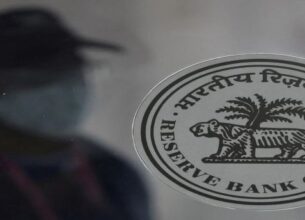WEIGHING IN ON THE PUBLIC SECTOR PRIVATISATION DEBATE
02, Jan 2020

Prelims level : Industries – Textile, E-Commerce, Pharma, Service
Mains level : GS-III Effects of liberalization on the Economy, Changes in Industrial Policy and their effects on Industrial Growth.
Context:
- While there is justification in selling loss-making units, the situation is more difficult to understand in the case of profit-making entities.
Different Modes of Privatization:
- There seem to be broadly three positions with respect to the privatisation of public sector undertakings (PSUs).
- The left position is “PSU is family silver (i.e.), selling for your own benefits, and should not be sold irrespective of its performance”.
- The divergent stand is that “business is not the business of government”, which found resonance in the United Kingdom, and, of late, in India.
- There is also the third position: Why privatise profit-making PSUs? Why do you sell the family silver? Bharat Petroleum Corporation Limited (BPCL) which is making handsome profits comes under this category.
What is the case of Loss-Making units?
- Loss-making PSUs certainly merit privatisation — but no one would buy them with their huge debt and employee liabilities.
- The government may even have to pay the buyer, as it happened in the case of the Delhi Discom privatisation.
- Even then it may be worth it, since privatisation will stop fiscal flows to these PSUs.
- Alternatively, there is the exit route through the new Insolvency and Bankruptcy Code.
- Some of the major loss-making PSUs, Bharat Sanchar Nigam Limited, Mahanagar Telephone Nigam Limited and Air India should go under the block as their losses are greater than their revenue. They are called as value subtracting enterprises.
- Restructuring them and even ensuring an additional infusion of funds and other resources have not produced results.
When Privatization is More Needed?
- Privatisation is not a default option; rather, it is resorted to only out of extreme necessity.
- “Privatization is resorted not just when the firm makes losses, but only when the physical performance is so bad that the PSU becomes a political embarrassment to the Government.”
- This may explain the hesitation to privatise some of the largest loss-making PSUs — Air India, the BSNL and MTNL — as the embarrassment threshold may not have been reached as yet.
What to be done after Privatization?
- There is no point in converting a public monopoly to a private monopoly; it will only result in inefficiency being replaced by private profits.
- Privatisation must be accompanied by competition in the post-privatized scenario.
- However, the government will face a dilemma. If high price is needed, it should allow a monopoly situation post-privatisation, and if it wants competition and low price for consumers, it should be content with a modest sale price, as the post-privatisation valuation of the firm critically depends on the market structure post-privatisation.
- If that is to be competitive, other PSU national oil companies such as the IOC and HPCL should also be privatized.
- Similarly, LPG and kerosene subsidies can be handled by direct benefit transfer, which is already in vogue in the case of LPG.







